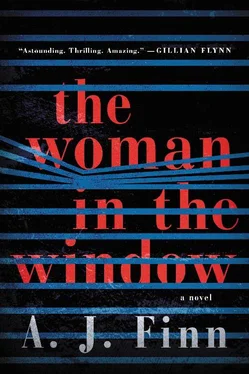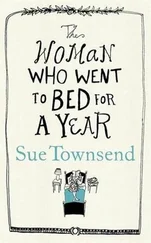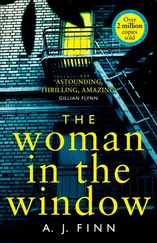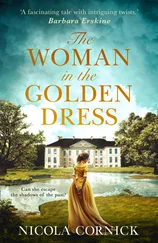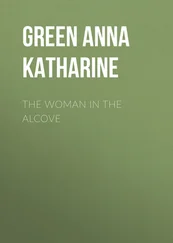А Финн - The Woman in the Window
Здесь есть возможность читать онлайн «А Финн - The Woman in the Window» весь текст электронной книги совершенно бесплатно (целиком полную версию без сокращений). В некоторых случаях можно слушать аудио, скачать через торрент в формате fb2 и присутствует краткое содержание. Год выпуска: 2018, ISBN: 2018, Издательство: William Morrow, Жанр: Триллер, det_all, на английском языке. Описание произведения, (предисловие) а так же отзывы посетителей доступны на портале библиотеки ЛибКат.
- Название:The Woman in the Window
- Автор:
- Издательство:William Morrow
- Жанр:
- Год:2018
- ISBN:9780062678416
- Рейтинг книги:5 / 5. Голосов: 1
-
Избранное:Добавить в избранное
- Отзывы:
-
Ваша оценка:
- 100
- 1
- 2
- 3
- 4
- 5
The Woman in the Window: краткое содержание, описание и аннотация
Предлагаем к чтению аннотацию, описание, краткое содержание или предисловие (зависит от того, что написал сам автор книги «The Woman in the Window»). Если вы не нашли необходимую информацию о книге — напишите в комментариях, мы постараемся отыскать её.
The Woman in the Window — читать онлайн бесплатно полную книгу (весь текст) целиком
Ниже представлен текст книги, разбитый по страницам. Система сохранения места последней прочитанной страницы, позволяет с удобством читать онлайн бесплатно книгу «The Woman in the Window», без необходимости каждый раз заново искать на чём Вы остановились. Поставьте закладку, и сможете в любой момент перейти на страницу, на которой закончили чтение.
Интервал:
Закладка:
“My dad . . .” He stops, glances through the window at his house. In the dark it glowers like a skull. “My dad was yelling, and I needed to get out of the house.”
“Where’s your mom?”
He sniffles, swipes at his nose again. “I don’t know.” A couple of deep breaths and he looks me in the eye. “Sorry. I don’t know where she is. She’s fine, though.”
“Is she?”
He sneezes, looks down. Punch has slipped between his feet, grating his body against Ethan’s shins. Ethan sneezes again.
“Sorry.” Another sniffle. “Cat.” He looks around, as if surprised to find himself in my kitchen. “I should go back. My dad’ll be angry.”
“Sounds as though he’s already angry.” I tug a chair back from the table, gesture to it.
He considers the chair, then darts his eyes back to the window. “I’ve gotta go. I shouldn’t have come over. I just . . .”
“You needed to get out of the house,” I finish. “I understand. But is it safe to go back?”
To my surprise, he laughs, short and spiky. “He talks big. That’s all. I’m not afraid of him.”
“But your mom is.”
He says nothing.
As far as I can see, Ethan doesn’t display any of the more obvious hallmarks of child abuse: His face and forearms are unmarked, his demeanor bright and outgoing (although he has cried twice, let’s not forget that), his hygiene satisfactory. But this is just an impression, just a glance. And he is, after all, standing here in my kitchen, slinging nervous looks at his home across the park.
I push the chair back into place. “I want you to have my cell number,” I tell him.
He nods—grudgingly, I think, but it’ll do. “Could you write it down for me?” he asks.
“You don’t have a phone?”
A shake of the head. “He—my dad won’t let me.” He sniffles. “I don’t have email, either.”
Not surprising. I fetch an old receipt from a kitchen drawer, scribble on it. Four digits in, I realize I’m writing out my old work number, the emergency line I reserved for my patients. “1-800-ANNA-NOW,” Ed used to joke.
“Sorry. Wrong number.” I slash a line through it, then jot down the correct one. When I look up again, he’s standing by the kitchen door, looking across the park at his house.
“You don’t have to go back there,” I say.
He turns. Hesitates. Shakes his head. “I’ve gotta head home.”
I nod, offer him the paper. He pockets it.
“You can call me anytime,” I say. “And share that number with your mom too, please.”
“Okay.” He’s moving toward the door, shoulders back, back straight. Bracing for battle, I think.
“Ethan?”
He turns, one hand on the doorknob.
“I mean it. Anytime.”
He nods. Then he opens the door and walks out.
I return to the window, watch him walk past the park, climb the steps, push his key into the lock. He pauses, draws a breath. Then he disappears inside.
26
Two hours later, I sluice the last of the wine down my throat, stand the bottle on the coffee table. I prop myself up, slowly, then tip to the other side, like the second hand of a clock.
No. Haul yourself to your bedroom. To your bathroom.
With the shower gushing, the last few days flood my brain, filling the fissures there, welling up in the hollows: Ethan, crying on the couch; Dr. Fielding and his high-voltage glasses; Bina, her leg braced against my spine; that whirlpool of a night when Jane visited. Ed’s voice in my ear. David with the knife. Alistair—a good man, a good father. Those screams.
I squeeze a slug of shampoo into one hand, smear it absently into my hair. The tide rises at my feet.
And the pills—God, the pills. “These are powerful psychotropics, Anna,” Dr. Fielding advised me at the very beginning, back when I was woolly on painkillers. “Use them responsibly.”
I press my palms against the wall, hang my head beneath the faucet, my face lurking within a dark cave of hair. Something’s happening to me, through me, something dangerous and new. It’s taken root, a poison tree; it’s grown, fanning out, vines winding round my gut, my lungs, my heart. “The pills,” I say, my voice soft and low amid the roar, like I’m speaking underwater.
My hand sketches hieroglyphs on the glass. I clear my eyes and read them. Over and over, across the door, I’ve written Jane Russell’s name.
Thursday, November 4
27
He lies on his back. I run a finger along the fence of dark hair that partitions his torso from navel to chest. “I like your body,” I tell him.
He sighs and smiles. “Don’t,” he says; and then, with my hand idling in the shallows of his neck, he catalogues his every flaw: the dry skin that makes terrazzo of his back; the single mole between his shoulder blades, like an Eskimo marooned on an expanse of flaggy ice; his warped thumbnail; his knobbed wrists; the tiny white scar that hyphenates his nostrils.
I finger the wound. My pinkie dips into his nose; he snorts. “How did it happen?” I ask.
He twists my hair around his thumb. “My cousin.”
“I didn’t know you had a cousin.”
“Two. This was my cousin Robin. He held a razor against my nose and said he’d slit my nostrils so that I only had one. And when I shook my head no, the blade sliced me.”
“God.”
He exhales. “I know. If I’d only nodded okay, it would’ve been fine.”
I smile. “How old were you?”
“Oh, this was last Tuesday.”
Now I laugh, and so does he.
As I surface, the dream drains away like water. The memory, really. I try to scoop it up in my palms, but it’s gone.
I press a hand against my forehead, hoping to smooth away the hangover. Cast the sheets to one side, ditch my nightclothes as I walk to the dresser, check the clock on the wall: 10:10, a waxed mustache on its face. I slept for twelve hours.
Yesterday has faded like a flower, yellow and wilted. A domestic dispute, unpleasant but not uncommon—that’s what I heard. Over heard, really; it’s none of my business. Perhaps Ed is right, I think as I clop down to my study.
Of course he’s right. A lot of stimulation: yes, indeed. Too much. I’m sleeping too much, drinking too much, thinking too much; too much, too much. De trop. Did I involve myself like this with the Millers when they arrived back in August? They never visited me, no, but still I studied their routines, tracked their movements, tagged them like sharks in the wild. So it isn’t that the Russells are particularly interesting. They’re just particularly nearby.
I’m concerned for Jane, naturally. And especially for Ethan. He just lost his temper —that must be a pretty ferocious temper. But I can’t approach, say, Child Protective Services; there’s nothing to go on. At this point it would do more harm than good. That I know.
My phone rings.
This happens so infrequently that for a moment I’m confused. I look outside, as though it’s a birdcall. The phone isn’t in the pockets of my robe; I hear it buzzing somewhere above me. By the time I’ve reached my bedroom and found it in the trough of the sheets, it’s gone mute.
The screen reads Julian Fielding. I hit Redial.
“Hello?”
“Hi, Dr. Fielding. I missed you just now.”
“Anna. Hello.”
“Hello, hi.” Many benedictions all round. My head throbs.
“I’m calling—one minute . . .” His voice shrinks, then returns, hard in my ear. “I’m in an elevator. I’m calling to make sure you filled your prescription.”
What prescript —ah, yes; the pills Jane collected for me at the door. “I did, in fact.”
“Good. I hope you don’t think this patronizing, me checking in on you.”
Читать дальшеИнтервал:
Закладка:
Похожие книги на «The Woman in the Window»
Представляем Вашему вниманию похожие книги на «The Woman in the Window» списком для выбора. Мы отобрали схожую по названию и смыслу литературу в надежде предоставить читателям больше вариантов отыскать новые, интересные, ещё непрочитанные произведения.
Обсуждение, отзывы о книге «The Woman in the Window» и просто собственные мнения читателей. Оставьте ваши комментарии, напишите, что Вы думаете о произведении, его смысле или главных героях. Укажите что конкретно понравилось, а что нет, и почему Вы так считаете.
